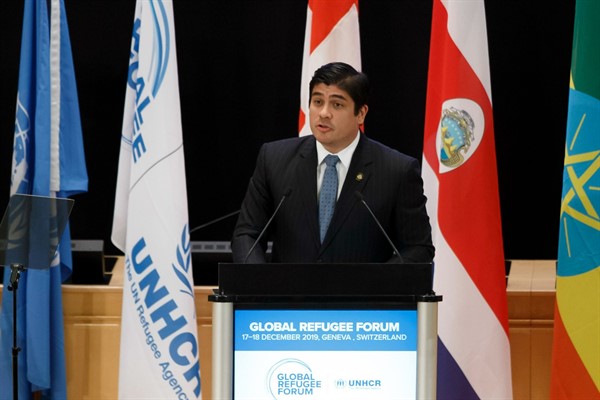A major scandal erupted in Costa Rica recently over privacy concerns stemming from a data analysis unit that President Carlos Alvarado created after he took office in 2018. The scandal has forced the resignation of several high-level Costa Rican government officials, but no evidence has emerged yet of any illegal intent on the part Alvarado’s administration. In an email interview with WPR, Suráyabi Ramírez, a graduate student at the London School of Economics and a former staffer in Costa Rica’s legislature, explains why the scandal has caused such an outcry and why it may still have far-reaching political implications.
World Politics Review: Why is the data collection scandal causing such an uproar in Costa Rica? How would you assess President Alvarado’s response?
Suráyabi Ramírez: At the beginning of his presidency in 2018, Alvarado created a three-person data analysis unit to support the public policy decision-making process. In mid-February, after almost two years in operation, the government sought to institutionalize the unit as a permanent advisory office through an executive decree. However, this decree contained a major contradiction: It guaranteed the anonymity of all households and individuals, despite authorizing the government to obtain confidential data from public institutions, which is illegal in Costa Rica.

